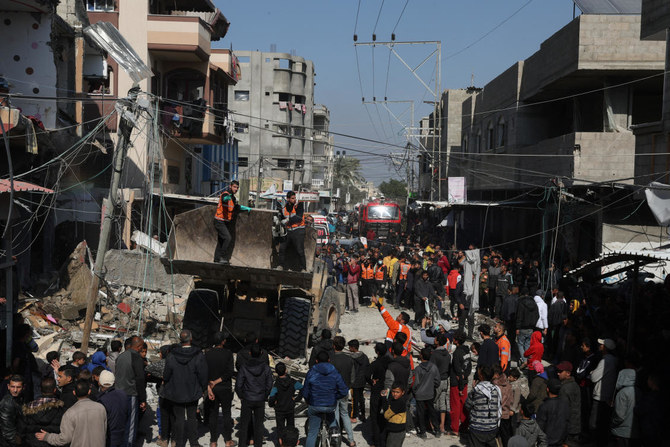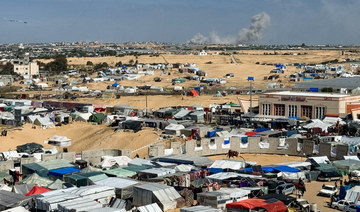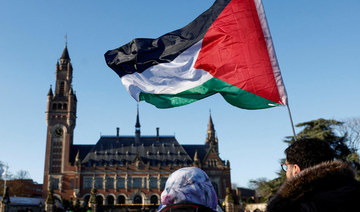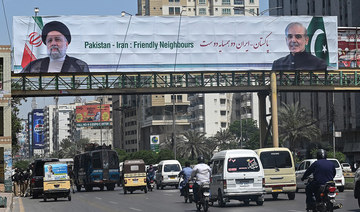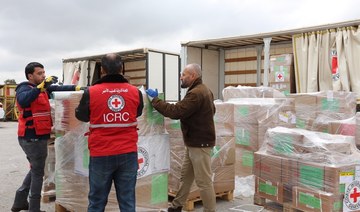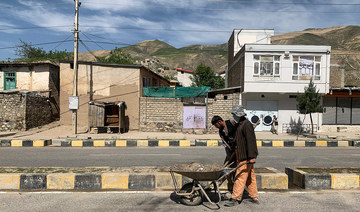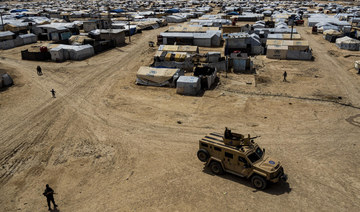RAFAH, Gaza Strip: Homeless, hungry Palestinians fearing an Israeli assault on their last relatively safe haven in Gaza said they were desperate for a lasting ceasefire as the United States said a temporary truce could be agreed soon.
A proposed deal from the start of the Muslim holy month of Ramadan in early March could stop the fighting for the first time since a brief truce in November and ease a human catastrophe unfolding in Gaza.
However, while negotiators discuss a reported proposal for a six-week truce, Israel’s enemy Hamas has said big differences remained and it was still demanding a permanent end to the fighting.
“We hope it will be a permanent ceasefire. We don’t want to go back to war because war after the first truce destroyed us and destroyed our houses,” said Rehab Redwan, a woman who had fled her house in Khan Younis to shelter in a roadside tent.
“Can you imagine — there’s no food, nothing to drink. There are no basics for life,” she added, saying she wanted to go back home even if it now rubble.
After nearly five months of Israel’s air and ground campaign, around 85 percent of Gaza’s 2.3 million residents have fled their homes, most houses are damaged or destroyed, famine looms and disease is rife, say aid agencies.
The war began when Hamas fighters attacked Israel on Oct. 7, killing around 1,200 people and seizing 253 hostages, according to Israeli tallies.
Israel’s air and ground campaign in Gaza has since killed around 30,000 Palestinians, health authorities in the Hamas-run enclave say.
PERMANENT OR TEMPORARY TRUCE
Walking with a small child through the crammed streets of Rafah, where most displaced Gaza residents have fled to and which Israel says it plans to assault next, Faraj Bakroon said reported conditions for the proposed truce made no sense to him.
As well as including only a weeks-long pause in fighting, there is no indication that Israel would allow people who fled south to go back to their homes in the north — particularly if they are men of military age.
“If the truce is like the previous one and they would start war again after it is over, we don’t want it. And if we can’t go to the north then a truce is not needed. Let’s keep the war until it is totally over,” he said.
“How will we go according to the age they specified? How do we take the children? We can’t leave our children behind and move. We need to bring them,” he added.
Still, for many people in Gaza any stop to fighting would be welcome, even if it falls short of a lasting ceasefire.
“We want a total truce in which we can live,” said Rashad Daher through his full white beard. But he added, “regarding this temporary truce, we ask God that it happens.”
Ahmed Al-Far, living in Rafah after fleeing his home in Gaza City in the north, where Israel’s offensive focused first, said he hoped for a truce “so people can catch their breath and heal their wounds.”
“There are 150 to 200 martyrs daily among the people. It’s a huge loss for our people,” he said.




